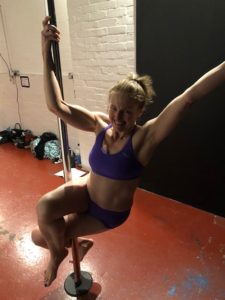
Today is a red letter day for me. Three years ago I reached my goal of losing 35 pounds. Three years on, I’ve maintained my new weight and am still enjoying the healthy lifestyle and enjoying the benefits.
Anyone who knows me knows that I’ve come to love working out, and that for me it’s always been a creative process. That’s why I joined a pole dance class twenty months ago, and I’m still loving it. Next weekend will be my second pole shoot. I shared the journey of getting to that first pole shoot with all of you lovelies last year.
For me, the fitness journey began as a way to combat depression. I hadn’t expected it to be such a life-changing experience. One of the reasons I do enjoy it is because I consider a workout a creative process. I know how to put together a routine for myself with any equipment or with none at all. And now that I have my own pole at home, I am beginning to make up my own workouts for pole as well. What does it take to get you there? I suppose that’s the big question I asked myself every day along the journey, whether it’s fitness, maintaining my weight, or writing, and I still do. It’s also the big question of my novella In Training. What do you want? How badly do you want it? And what does it take to get you there? What inspires you enough to make you pull out all the stops and totally go for … well for anything that really matters?
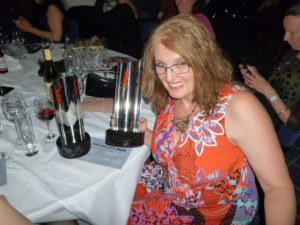 My own journey being what it has been, it’s not surprising that my heroine, PR guru Lauren Michaels, has to find her own reason for pushing herself. A gym is the last place she wants to be, but her boss has just made her the ‘get fit’ star in a reality fitness TV show with bad boy personal trainer, Wolf Jennings, who will get her there even if he has to drag her kicking and screaming. At least that’s his plan. But it’s only when she finds her reason to push that Lauren decides she really wants to “get there,” and she wants to do it with Wolf Jennings. Here’s a little excerpt.
My own journey being what it has been, it’s not surprising that my heroine, PR guru Lauren Michaels, has to find her own reason for pushing herself. A gym is the last place she wants to be, but her boss has just made her the ‘get fit’ star in a reality fitness TV show with bad boy personal trainer, Wolf Jennings, who will get her there even if he has to drag her kicking and screaming. At least that’s his plan. But it’s only when she finds her reason to push that Lauren decides she really wants to “get there,” and she wants to do it with Wolf Jennings. Here’s a little excerpt.
In Training Blurb:
Getting fit on reality TV is PR guru, Lauren Michael’s, brainchild for gym equipment and fitness company Physicality, Inc. The brilliant PR stunt involves one brave volunteer who wants to be fit badly enough to submit to the not so tender training techniques of personal trainer, Wolf Jennings, whose successful, but non-conventional, methods would make a drill sergeant look like a fluff ball. But when CEO and owner of Physicality, Inc, Claire Amos, decides her PR ace in the hole needs to walk the talk , Lauren finds herself between a kettle bell and a hard place … er a hard trainer. That’s nightmare enough, but for six weeks, 24/7 the explosive chemistry between the two will be sweated out live on camera for the whole world to see. What could possibly go wrong?
Wanna Bet? In Training Excerpt:
“On your knees, Michaels! Do it on your knees. You can’t do a full press-up until we 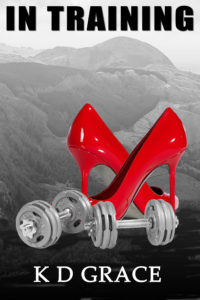 strengthen those spaghetti arms. Do it like this.” He demonstrated the modified press-up. “Now I want you to do as many as you can in thirty seconds.” While thirty seconds lasted forever, as many press-ups as Lauren could do didn’t take long at all before she fell to the mat with her arms trembling. “Damn it Michaels, you gotta be willing to push yourself. I can’t do it for you.” He reset his timer. “Do it again.”
strengthen those spaghetti arms. Do it like this.” He demonstrated the modified press-up. “Now I want you to do as many as you can in thirty seconds.” While thirty seconds lasted forever, as many press-ups as Lauren could do didn’t take long at all before she fell to the mat with her arms trembling. “Damn it Michaels, you gotta be willing to push yourself. I can’t do it for you.” He reset his timer. “Do it again.”
“Well this isn’t an auspicious beginning, Misty,” Del Allan said as they observed the training session going on in the gym below. “As much as I admire Claire Amos for believing her people should walk the talk, it’s clear to me that Lauren Michaels’ heart just isn’t in it. One has to wonder why the waste of time, energy and money for someone who doesn’t want to be here when there are so many who really do. I’ve said it before, I hope Physicality has a back-up plan because I’m betting Lauren Michaels won’t make it to the end of the week.”
“The real question, Del, is not whether Wolf Jennings can ‘get someone there,’ but whether he can motivate someone to wanthim to. Certainly this is a world away from what Lauren is used to, and apparently she didn’t know she’d be participating until twenty-four hours before.”
It was near the end of the fourth day when Lauren finally broke. “I can’t do any more,” she gasped after what seemed like miles of lunge walking back and forth across the gym with a dumb bell in each hand — dumb bells that got heavier with each step. “I need the hot tub. When do I get to use the hot tub?”
“When you’ve earned it,” Jennings growled. “Now do it again.”
“I hate you,” she forced the words out, no longer caring if the ever-present cameras picked up her remark or not. She reckoned that would be one more reason for the ‘sack Lauren and hire me’ faction to tweet nasty things about her. It’s not as if she wouldn’t trade places with them in a heartbeat.
“I’m not here for you to like,” came the reply. “Keep your back straight, shoulders back. Head up!”
She was halfway across the gym when one of the dumb bells slipped from her sweaty fingers, hit the floor with a loud crash, and she tripped over it doing into a belly flop in the middle of the gym.
“Get up. Keep going,” Wolf yelled, jogging effortlessly to her side. “Don’t be a wimp, Michaels. Finish it. I don’t train babies. Stop whinging and keep going.”
“I hate you.” This time she all but yelled it as she hefted the sweaty dumb bell and forced her way forward a couple more steps before she dropped the weight again — this time on her foot. It was only a glancing blow. She jerked away just in time, but it was enough. It was fucking enough! She dropped the other weight next to its fallen compadre and stormed back across the gym.
“Where the hell do you think you’re going?” He said, “You’re not done yet.”
“Oh yes I am.” She grabbed up her sports drink and her towel.
“What? Are you a quitter, Michaels?” Jennings stepped in front of her effectively blocking her way, “Is that it?”
“What I am is sick of you yelling at me, sick of you treating me like a sub-human.” She hadn’t planned it, but when he didn’t move, it just happened. A quick twist of the lid on her sports drink and she let it fly. Her aim was true, hitting Jennings in the face with a shower of bright orange Lukozade. Then she stomped off toward her room. She hadn’t expected him to follow her, but then there were a lot of things she hadn’t expected about the man she’d met at the pub less than a week ago.
Legs still screaming from the workout, she took the stairs two at a time with him gaining on her fast. At the top, he called after her. “They’re taking bets on how soon you’ll quit. Did you know that, Michaels?”
She stopped, dead in her tracks, as though she were suddenly frozen to the spot. For a second she squeezed her eyes shut, fighting back tears. Then she took a deep breath, squared her shoulders and headed back toward the stairs, stopping in front of him to meet his cold glare. “Then they’ll lose.”
Fucking hell! Did she just say that? Surely she didn’t mean it. She would do almost anything to get out of this chamber of horrors, and yet here she was marching back downstairs, picking up the goddamned dumb bells, taking a deep breath and willing her legs to move forward. When she got to the end, instead of stopping, she gave Jennings a defiant glare, from where he now stood at the foot of the stairs, then she turned and headed back across. Somewhere a long way off, she could hear gasps and chatter from Wolf’s mezzanine fan club, but it didn’t matter. The world around her narrowed to the in and out drag of her breath, the pain in her quads and the slow step and lunge, step and lunge, that pulled her forward.
At the end, she dropped the dumb bells and bent over gasping, eyes clenched shut, hands on her knees. When at last she had the strength to stand up, she was surprised to find him next to, hair still dewed in orange. He handed her a bottle of water and a towel. While she drank, he wiped his face on his shirt.
She didn’t look at him, she was still battling the urge to cry. She knew all eyes were on her. After the drama she was now embarrassed to have caused, that was a given. But it was only Wolf Jenning’s eyes she felt in ways that were somehow even more intimate than his kiss at the pub. At last she handed him back the bottle and  struggled to meet his gaze.
struggled to meet his gaze.
“That’s better,” he said. “Now drop and give me ten. Pull a stunt like that again and I’ll shove you on the treadmill till your Reeboks wear out.”
She did as he ordered, counting each press-up out loud and hardly feeling the effort, dazed as she was by what had just happened.
 ‘The word became flesh and dwelt among us.’
‘The word became flesh and dwelt among us.’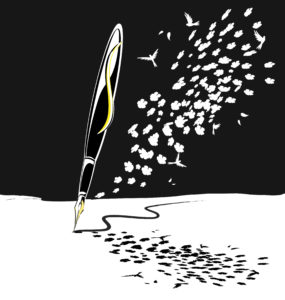 stories seemingly come out of nowhere, and expand to fill our days, and often our nights and any moment we can spare in our efforts to get them down, in our efforts to create something real. Even when I’m not plopped in front of the computer writing, the story, the characters, the next scene – they’re all going through my head. Some of the best, most creative writing happens when I’m not physically writing at all.
stories seemingly come out of nowhere, and expand to fill our days, and often our nights and any moment we can spare in our efforts to get them down, in our efforts to create something real. Even when I’m not plopped in front of the computer writing, the story, the characters, the next scene – they’re all going through my head. Some of the best, most creative writing happens when I’m not physically writing at all.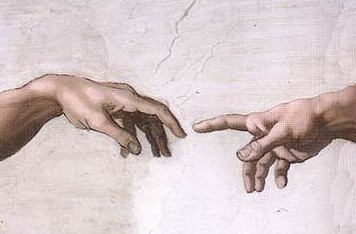 the wilderness of flawed humanity. What I am certain of is that my world is brighter, more textured, more three-dimensional because of the characters I’ve created to populate the worlds I’ve written, and especially because they choose free will over my commands. I guess that shouldn’t surprise me, since the stories we writers create are a part of ourselves yet to be discovered and the discovery is absolutely an adventure in creation.
the wilderness of flawed humanity. What I am certain of is that my world is brighter, more textured, more three-dimensional because of the characters I’ve created to populate the worlds I’ve written, and especially because they choose free will over my commands. I guess that shouldn’t surprise me, since the stories we writers create are a part of ourselves yet to be discovered and the discovery is absolutely an adventure in creation.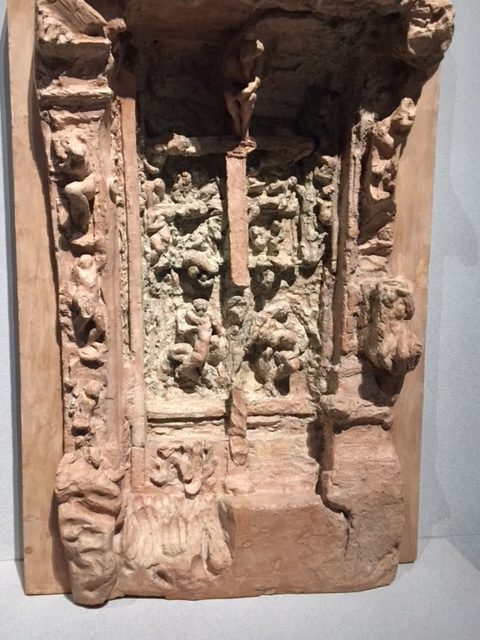
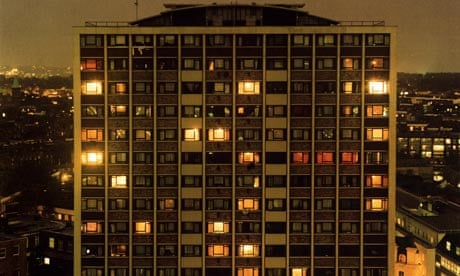
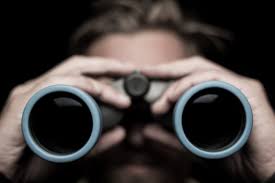
 I’ve spent the last week dragging around with a brutal cold. I’m very seldom ill, and almost never ill enough to take to bed. But this time, without full brain function, it seemed the expedient thing to do — lousy timing or not. While I groused and grumbled between sniffles and sneezes, aches and pains, I also made a discovery. I did have enough brainpower to lose myself in a good read. Since I wasn’t sleeping well for the first couple of nights, I took full advantage, binge rereading
I’ve spent the last week dragging around with a brutal cold. I’m very seldom ill, and almost never ill enough to take to bed. But this time, without full brain function, it seemed the expedient thing to do — lousy timing or not. While I groused and grumbled between sniffles and sneezes, aches and pains, I also made a discovery. I did have enough brainpower to lose myself in a good read. Since I wasn’t sleeping well for the first couple of nights, I took full advantage, binge rereading  in some cultures sat with kings and queens as their equals.
in some cultures sat with kings and queens as their equals.
 My own journey being what it has been, it’s not surprising that my heroine, PR guru Lauren Michaels, has to find her own reason for pushing herself. A gym is the last place she wants to be, but her boss has just made her the ‘get fit’ star in a reality fitness TV show with bad boy personal trainer, Wolf Jennings, who will get her there even if he has to drag her kicking and screaming. At least that’s his plan. But it’s only when she finds her reason to push that Lauren decides she really wants to “get there,” and she wants to do it with Wolf Jennings. Here’s a little excerpt.
My own journey being what it has been, it’s not surprising that my heroine, PR guru Lauren Michaels, has to find her own reason for pushing herself. A gym is the last place she wants to be, but her boss has just made her the ‘get fit’ star in a reality fitness TV show with bad boy personal trainer, Wolf Jennings, who will get her there even if he has to drag her kicking and screaming. At least that’s his plan. But it’s only when she finds her reason to push that Lauren decides she really wants to “get there,” and she wants to do it with Wolf Jennings. Here’s a little excerpt. strengthen those spaghetti arms. Do it like this.” He demonstrated the modified press-up. “Now I want you to do as many as you can in thirty seconds.” While thirty seconds lasted forever, as many press-ups as Lauren could do didn’t take long at all before she fell to the mat with her arms trembling. “Damn it Michaels, you gotta be willing to push yourself. I can’t do it for you.” He reset his timer. “Do it again.”
strengthen those spaghetti arms. Do it like this.” He demonstrated the modified press-up. “Now I want you to do as many as you can in thirty seconds.” While thirty seconds lasted forever, as many press-ups as Lauren could do didn’t take long at all before she fell to the mat with her arms trembling. “Damn it Michaels, you gotta be willing to push yourself. I can’t do it for you.” He reset his timer. “Do it again.” struggled to meet his gaze.
struggled to meet his gaze. punch for me with the loss of my sister. I’m more than ready to shed 2018 and move forward. As of tomorrow, the gym will be overflowing with New Years Resolutioners; all around the world new diets will have begun as soon as the New Year hangover wears off; people stop drinking, stop smoking, begin learning Spanish or French, people promise to take better care of themselves, spend more time with good friends, waste less time in front of the telly, and the list goes on. Since Boxing Day, the universal urge to be ‘better’ in the New Year has been nearly palpable in the soggy English air.
punch for me with the loss of my sister. I’m more than ready to shed 2018 and move forward. As of tomorrow, the gym will be overflowing with New Years Resolutioners; all around the world new diets will have begun as soon as the New Year hangover wears off; people stop drinking, stop smoking, begin learning Spanish or French, people promise to take better care of themselves, spend more time with good friends, waste less time in front of the telly, and the list goes on. Since Boxing Day, the universal urge to be ‘better’ in the New Year has been nearly palpable in the soggy English air.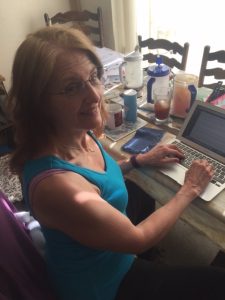 more time and energy than the end of the year entry, in which I reflected on how I did on the year’s resolutions and planned my resolutions for the next. This was a process that often began in early December with me reading back through journals, taking notes, tracing down some of what I’d been reading during that year and reflecting on it. Yeah, I know. I needed to get a life!
more time and energy than the end of the year entry, in which I reflected on how I did on the year’s resolutions and planned my resolutions for the next. This was a process that often began in early December with me reading back through journals, taking notes, tracing down some of what I’d been reading during that year and reflecting on it. Yeah, I know. I needed to get a life! the corners of my life. They came upon me, not in a sneak attack so much as a passing brush with someone who would somehow become my best friend.
the corners of my life. They came upon me, not in a sneak attack so much as a passing brush with someone who would somehow become my best friend.